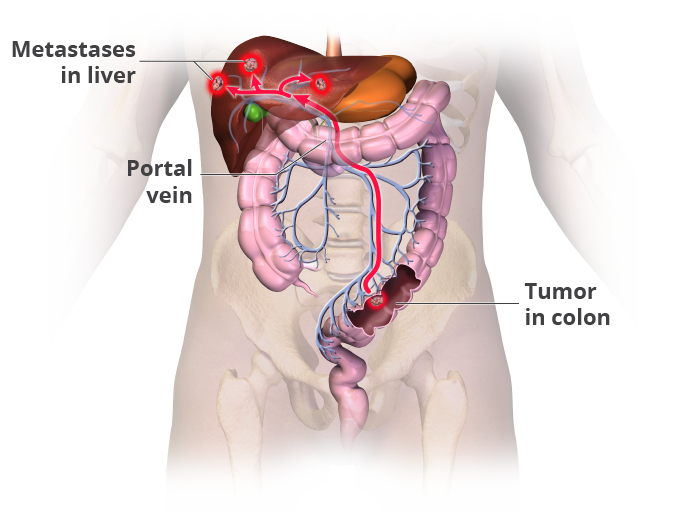
Patients with Stage IV CRC have cancer that has spread (metastasized) from the colon or rectum to distant organs and tissues, such as the liver, lungs, brain, abdominal cavity or distant lymph nodes. The liver is the most common site of metastases in CRC. Surgery is unlikely to cure the cancer in most of these cases. The goals of therapy focus on reducing side effects attributable to the cancer or cancer treatment, managing the symptoms of the disease and the side effects of treatment, and extending life as much as possible.
Pathway of mCRC to Liver Metastasis

In patients with metastatic disease, molecular testing is vitally important to treatment decisions since patients with RAS and BRAF mutations, and patients with deficient mismatch repair (dMMR) and microsatellite instability-high (MSI-H) status, will be treated with different agents. Oncologists tend to view colorectal cancers with different mutations as different forms of the disease, and are likely to treat certain forms of mCRC, such as those with BRAF V600E mutations, more aggressively.
In patients with Stage IV disease, surgery may be used to relieve an obstruction caused by the tumor, or it may be used to remove a metastatic growth. Patients are also treated with chemotherapy and targeted agents or immunotherapies. Radiation therapy is used to relieve Stage IV disease symptoms.